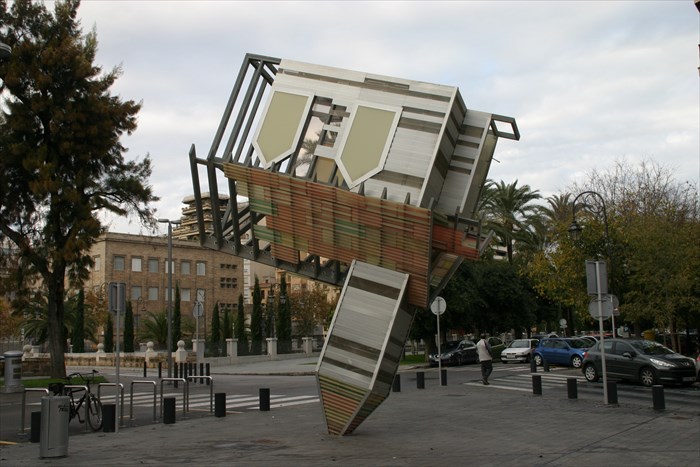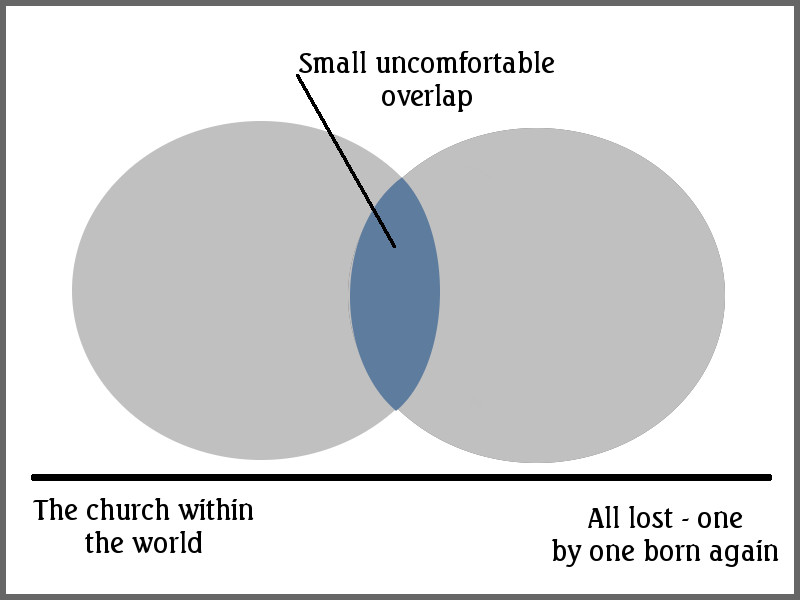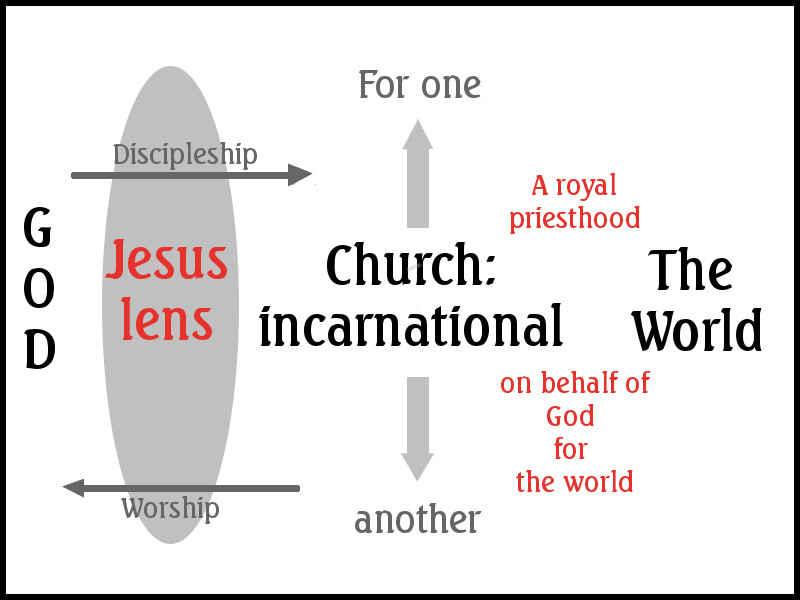Paul seems intent on seeing an ekklesia in every significant city / area within the oikoumene (‘civilised’ land – most commonly used of the territory governed by an empire). In those cities there was already an ekklesia, maybe if we gave it a modern twist, a city government, a body of people who took on the responsibility for the shape, culture and values of the city; they were focused on enabling the city to a better future.
With Paul’s language it is not surprising that the initial understanding was not that he was calling people to raise their hand and pray the sinner’s prayer but that he was presenting a political vision for the oikoumene, indeed for the kosmos. And when he bodly called those who responded ‘the ekklesia of Jesus’ in that city that political understanding would have been re-enforced. Adding to this that the word ekklesia, in the Greek translation that was in common use, translated the Hebrew word qahal – used of the people when they were called to act in response to God. Seems to me that ekklesia has a lot to do with purpose and a purpose related to the wider community setting. If the Imperially endorsed ekklesia were to take responsibity for the city, to ensure that (e.g.) Corinth was a copy of Rome (headquarters), then the Jesus’ ekklesia had a responsibility to work toward (e.g.) Corinth being modelled on heaven (headquarters). This being the understanding behind Paul saying that ‘our citizenship (passport?) is in heaven’. It has nothing to do with going to heaven when we die, but a lot to do with here and now, not a much later idea to do with there and then.
So far no issue raised but as I am suggesting ‘going too far’ – although this time I do not think it is too far.
Paul was focused on getting something in place. He wrote to the Corinthians that if only their faith would increase he would no longer need to be working with them. His apostolic work would have been complete, that of laying a foundation so that they could get on with the work, the work of enabling heaven on earth, or within that part of the oikoumene that they carried responsibility for. What did Paul have in mind once that first task – an ekklesia in every city – had been accomplished?
We can have many debates on ‘church as shaped by the New Testament’, but I think we are probably missing the point. Why an ekklesia? Maybe Paul had something in mind once ‘their faith’ had increased, something beyond church as caring community? I think so, but then again he might only have had sight of the first level of strategy, in reality it does not matter too much what he saw or didn’t. What does matter is what do we see?
Church as healing community, as all-embracing of those who are open to the embrace of the love of heaven, is a wonderful reality, and exchanging that for a purpose driven, law-demanding group of dysfunctional people on a mission would be a disaster. There must always be a place for those who have been broken by the oppression of ‘sin’. Gayle is convinced John the disciple of Jesus had special needs, and ‘The Chosen’ presents Matthew as somewhere on a spectrum that we consider is not ‘normal’! There is space for all of us who don’t fit. A place for everyone, and not a place provided we get all our issues sorted and then can become some sort of warrior. However… you knew there would be an ‘however’.
There has to be something in evidence among ‘us’ that we take responsibility for where we are located.
I consider that with respect to the Bible we have to be ‘post-Pauline’, we need to follow the trajectory that we can see in his writings.
To be ‘post-Pauline’ we will not be un-Pauline. But we will need to move beyond getting dogged down in ‘church’ debates; moving beyond drawing firmly in the dust a line of who is in and who is out. If we are willing to draw in the dust as Jesus did (with the woman caught in adultery) we will touch the dust of humanity and challenge all religious judgements while calling people to their true humanity.
Losing the small vision of getting more people on the inside of our box, but encouraging the small people so that their faith will grow. Those who are serving but have no understanding of demonic powers should not be dealing with demonic strongholds – surely that is an area of responsibility that is ours. Removing powers that have dominated and restricted forward momentum so that good people can serve – our task. Painting a vision for a future that is not based on past inadequate foundations. The sky (heaven?) is the limit.
Paul seemed to have a level of vision (and a vision for the whole of the oikoumene) that he presented daily in Ephesus that got the attention of those who held supremely endorsed Roman authority to ensure that Ephesus (and the wider Asia Minor) was mirrored on Rome.They had not submitted to the ‘Jesus as personal Saviour’ message but had been impacted by ‘Jesus as the Saviour of the world’ message. Maybe if we focus too much on the ‘Jesus as personal Saviour’ message we might find that people wander in darkness without a clue about what a new heaven and earth might look like; maybe if we focused on ‘Jesus as the Saviour of the world’ people might find their way to Jesus as personal Saviour. Maybe then (and I think is possible) that the bees might buzz with anticipation that they will survive.







